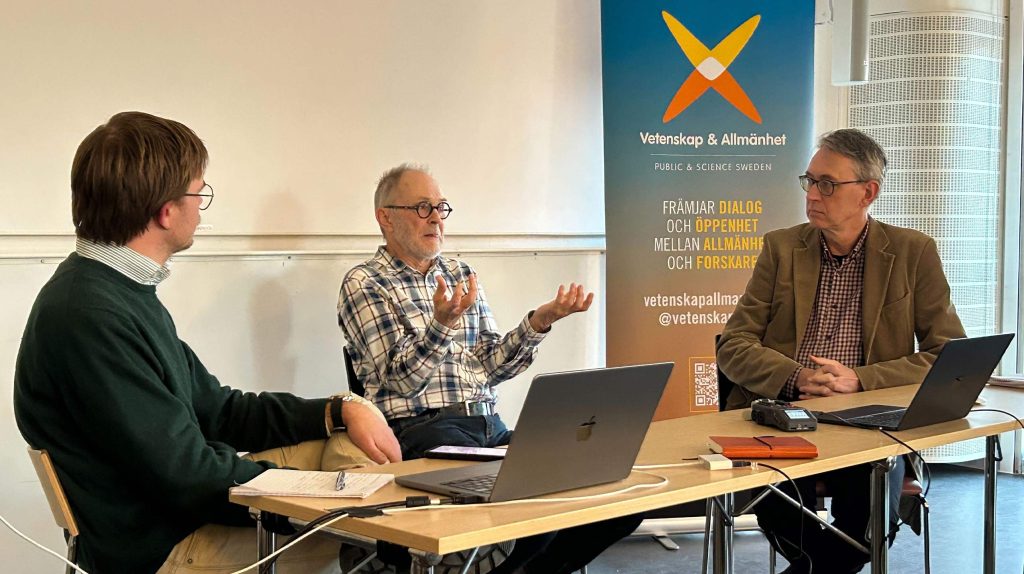What are the political and economic factors shaping land use? What conflicting interests are at play, and what is needed to protect our valuable soils? These questions were at the heart of a live-streamed panel discussion held on 20 January at the Centre for Sustainability Studies at Lund University, as part of the EU LOESS project.
Anders Larsson, Senior Lecturer at the Department of Landscape Architecture, Planning, and Management at SLU Alnarp, opened the discussion with a presentation on the challenges posed by the exploitation of valuable agricultural land in Sweden.
Despite the EU’s new land strategy setting a target of ”no net land take” by 2050 – meaning that no more land should be repurposed except for biodiversity conservation or carbon sequestration – Swedish municipalities continue to expand into agricultural areas. This is particularly concerning given that Sweden already has the second-largest artificial land cover in Europe.
”Sweden’s biggest shortcoming is, unfortunately, legislation.”
”Compared to countries like Switzerland and Germany, our environmental policies on land sealing are far too weak,” said Anders Larsson.

Urban expansion threatens regional development
The increasing spread of sealed surfaces not only threatens biodiversity and increases risks of flooding and water shortages but also undermines sustainable regional development. In sparsely populated urban areas – common in Sweden – public services and infrastructure become more expensive and difficult to maintain. Overuse of natural resources, inadequate public transport networks, growing car dependency, and increasing congestion in and around cities are additional challenges.
”In central Europe, they’ve already reached the limits of urban sprawl.”
”In central Europe, they’ve already reached the limits of urban sprawl. Because of this, they take these issues much more seriously than we do in Sweden,” Anders Larsson argued.
Corporate control over industrial agriculture
The panel also featured Lennart Olsson, Professor of Geography at Lund University, who provided a global perspective on how today’s industrial agriculture is largely controlled by multinational corporations. These corporations have strong financial incentives to maintain monocultures and a system where farmers remain dependent on seeds, artificial fertilisers, chemical pesticides, and large-scale agricultural machinery.”If your entire business model relies on you being the only one who can solve a problem, then you don’t want that problem to go away. That’s exactly the case for these companies, which invest heavily in lobbying and political influence to maintain the status quo,” said Lennart Olsson.

The perennial revolution as the way forward
Lennart Olsson also introduced a potential solution: the ”perennial revolution” – a shift from annual to perennial crops. Perennial crops could address many of the environmental challenges caused by modern agriculture. Their deep root systems help prevent soil erosion and enrich the soil, while their ability to sequester carbon throughout the year reduces the need for ploughing, making them beneficial for the climate.
”There is currently intensive research into the rapid domestication of wild perennial crops, such as the wheatgrass Kernza,” explained Lennart Olsson.
Student workshop
Around 30 people attended the discussion in person at Lund University, with an additional 60 participants joining online. The panel was followed by a collaborative workshop, where a group of students from various disciplines, led by Emma Johansson, researcher at the Centre for Sustainability Studies, explored the skills needed to tackle future soil-related challenges.
The discussion was moderated by Johan Sparf and was part of the EU-funded LOESS project, which aims to increase public interest and knowledge about soil health.
This was the second of three panel discussions in a series on soil health. The event was recorded and available to watch in Swedish. Read about the first and third panel discussions.
